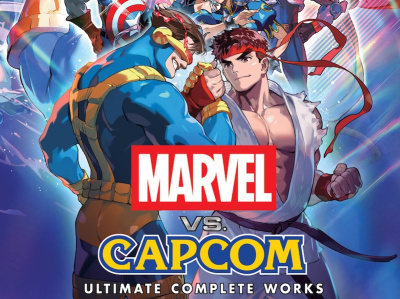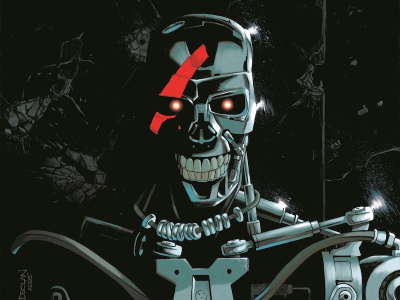Confessions of a Comic Book Guy is a weekly column by retailer Steve Bennett of Mary Alice Wilson's Dark Star Books in
Thanks to series like Civil War and 52 the sales of and interest in super-heroes have reached a decade high. Last week the Post Office released a sheet of DC super-hero stamps while The Sci-Fi Channel ran the first episode of Stan Lee's Who Wants To Be a Superhero. And this week's Entertainment Weekly opens with a San Diego Comic-Con report. Comic books and comic book characters have seamlessly assimilated themselves into almost every aspect of not only our popular culture but world culture. For us things could hardly be better.
Or course it could all be temporary, another welcome but temporary boom inevitably followed by a bust; just a matter of comic books again coming up at the top of the rotation as the latest trend and we'll be every media outlet's darling until they move on to something shinier. Maybe I'm just a textbook example definition of a fanatic (i.e., doing the same thing over and over again but expecting different results), but I don't think so. I think the world has finally caught up with us.
But now we're starting to lag behind. As they exist today, the comic book shop is every bit as antiquated as an apothecary.
Surprisingly, from time to time people have actually asked my advice about how to start a comic book shop and one tidbit I always tell them is 'You Have To Sell Something Else.'
Oh, I'm sure there are shops that sell nothing but comics and graphic novels, but they're few and far between. Hopefully at least you're selling material tangentially connected to your mutual mission statement: toys, fantasy/horror/animation DVD's, super-hero t-shirts, etc. But it could just as easily be anything that might increase the probability of warm bodies entering your store, everything from lotto tickets to newspapers to guns.
But wouldn't it be great if you didn't? Rather, wouldn't it be great if that something was comics? I know I've hit this particularly nail repeatedly, but you're probably already selling as many super-hero comics as you can, but that doesn't mean you couldn't be selling horror comics, Disney collections or The Babysitter Club graphic novels.
Because now that most of the stigma from reading comics has rubbed off, that our news is considered news by TV Guide and Entertainment Weekly, all bets are off as to who you can sell comics too. I swear in the very same day we had a pair of pre-teen customers that threw my expectations completely out of whack. The first was a ten year old boy who came in with his mom; when she pointed to the racks of super-hero comics he sneered 'I only read Japanese comics' (then, go figure, he brought up to the counter a pair of at least twenty year old Family Circus collections from our used section). He was followed by a twelve year old girl who bought the latest issue of Spidey Loves Mary Jane and was easily convinced to try Runaways.
A year old ago our resident manga expert May had never even read a super-hero comic; now she's down for all the Civil War-related Marvels. And The Marvel is certainly doing an about face; thanks to the unexpected success of the Halo graphic novel they're reversing over fifteen years of corporate policy and are not only talking about a regular Halo comic but even more licensed titles.
Ok, sure, anecdotal evidence really isn't evidence at all, but let's take another look at the Barnes & Borders, what I like to call the Barnes & Noble/Borders super book stores. I once declared with their incredible selection of comic books, graphic novels and related magazines they were, ipso facto, an undeclared national comic book shop chain. And yet with pockets deep enough to get absolutely everything (not to mention flavored coffee drinks, snacks and comfy chairs), they haven't driven us out of business yet.
Maybe that's because, without really meaning to, they've grown our business by growing the number of people who have access to comics.
I mean, you can buy flowers at your local super grocery store and sometimes you may find you have to, because of convenience, expense, etc. But I know if I want to really talk to someone about my purchase, about which flowers are appropriate for the person I want to send them too, I know I have to go to a florist. At one place all you get are flowers, at the other you get an authentic experience.
And if you want to go talk to someone about comics, hear informed decisions; get recommendations appropriate for kids, learn a little about the history of the medium, you have to come to us. So, with that in mind, maybe it's time we widen the definition of what constitutes 'comics' so we'll be ready for them when they come in. I'll write more about that next week.







